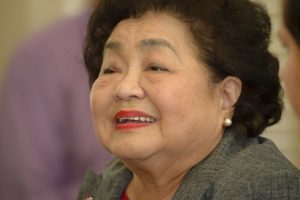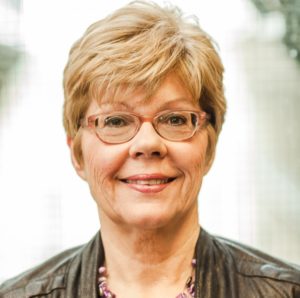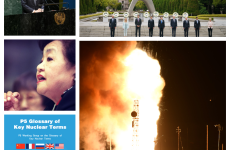It’s not open by much, and it might shut soon, but the diminished return of the Trudeau Liberals has created a ‘window’ to review The Incredible Shrinking Issue of the 2019 election: Canada’s foreign and defense priorities in an age of grave and growing nuclear peril.
Though domestic politics naturally dominated the campaign, and will largely determine the longevity and effectiveness of the new government, the ghostly presence of the wider world in 40 days of often desultory ‘debate’ was dismaying. One half of the global climate crisis, the accelerated warming of the planet caused by greenhouse-gas emissions, was indeed present, mobilizing millions and clearly emerging – “It’s the Environment, Stupid!” – as a preeminent ‘ballot box question.’
The other half – the specter of grievous planetary harm from even a so-called ‘limited’ nuclear war — went generally undetected and entirely undebated, as dangerously invisible as, well, radiation…
The sickening silence rang loudest in the platforms of the two traditionally governing parties, both of which once paid routine close attention to ‘the Bomb.’ The Conservatives, however, have now been sidelined, and the Liberals reduced to an unpredictable degree of dependence on three parties – the New Democrats, Greens and the Bloc Quebecois – far more aware (though they could hardly be less!) of the double danger we now face: of the need to denuclearize as well as decarbonize.
Ten days before election day, Peggy Mason, Canada’s former Ambassador for Disarmament (serving both Conservative and Liberal leaders from 1989-1995), made a valiant attempt to call attention to the Grim Nuclear Reaper tapping his scythe on the dark glass of the campaign. In a presentation, itself grimly-entitled ‘From Nuclear Disarmament Stalwart to Nuclear Weapons Apologist,’ Mason argued that to “understand the extent of Canada’s retreat from staunch defender of meaningful steps towards increased nuclear restraint and eventual disarmament to the shocking role of U.S. nuclear apologist, it is necessary to review the position of Canada in the context of the NPT,” the 1970 Non-Proliferation Treaty mandating “good faith negotiations” on nuclear disarmament, “and NATO,” the world’s only nuclear-armed alliance, which since Mason’s time as ambassador has expanded beyond the borders of the former Soviet Union while insisting (as, in response, has Russia) on its ‘right’ to ‘go nuclear’ first in any conflict.
In the 1990s, Canada was known in NATO as ‘the nuclear nag,’ pressing for a general review of alliance doctrine and questioning, in particular, the continued deployment of ‘tactical’ nuclear bombs in the air forces of five ‘non-nuclear’ NATO states (Belgium, Germany, Italy, the Netherlands and Turkey). Canada also played, Mason notes, “a significant bridging role in the indefinite extension in 1995 of the NPT, from its original 20-year term.” Such pro-disarmament ambitions, however, were thwarted by the strategic calamity of NATO expansion, which Canada enthusiastically championed — and even managed to approve, in 1998, without a vote or debate in parliament!
Twenty years later, NATO’s nuclear ‘dagger’ is still there, but the Canadian ‘nagger’ is gone. Under the Harper Conservatives, writes Mason:
[A]s the need for nuclear restraint and reassurance measures became more pressing, Canadian nuclear disarmament diplomacy was increasingly eclipsed by rote support for NATO’s nuclear posture and not its NPT disarmament obligations.
And while “it is precisely this unbalanced approach that should have been rectified by the Justin Trudeau government, with its lofty promises of Canadian leadership in defence of multilateralism and a rules-based international order,” incredibly it “did not seem to even occur to the government that nuclear arms control is a key cornerstone of that order.”
Trudeau, indeed, seemed as certain as Harper that Canada could continue to honor its increasingly irreconcilable obligations to the NPT and NATO. But when a large majority of NPT states rose in revolt against the nuclear-armed powers and their Bomb-friendly friends, the ‘game’ and its rules changed forever. In July 2017 – after negotiations “shamefully boycotted,” as Mason laments, by Canada – 122 states adopted the Treaty on the Prohibition of Nuclear Weapons (TPNW), the ‘Ban Treaty’ described by Hiroshima survivor Setsuko Thurlow, a Canadian citizen since the 1950s, as “the beginning of the end of nuclear weapons.”

Final UN vote count, Treaty on the Prohibition of Nuclear Weapons 7 July: 122 states, two thirds of the UN General Assembly, voted in favor.
Perhaps: but whether or not her prophecy comes true, the new accord is surely more than “sort of useless,” as Trudeau infamously sneered in the House of Commons on 7 June 2017, shortly after declining an invitation to meet Thurlow when she visited Parliament Hill.
The Sneer and Snub came amid three ‘Liberal doses’ of ostensibly ‘new’ policy. On June 6, Foreign Minister Chrystia Freeland delivered a major address on global priorities, promoting Canada as “an essential country” while omitting all mention of disarmament (of any kind) and describing armed conflict as not only “part of our history” but something which “must be part of our future.”
The table was thus set for Defense Minister Harjit Sajjan, unveiling on June 7 a plan to “grow annual defense spending from $18.9 billion in 2016/2017 to $32.7 billion in 2026/27 – on a cash basis, an increase of over 70 percent,” with the bulk of the investment in major offensive systems such as warships, armed drones and a mere 88 fighter jets.
And on June 9 – “to add insult to injury,” as Ceasefire.ca put it at the time – Minister of International Development, Marie-Claude Bibeau, announced a new “feminist aid policy” involving, to be exact, no new funding at all.
Over two years later, how many of these missteps tripped up the government at the polls? How many candidates expressed, or heard, concerns about nuclear weapons, or the need to prevent ‘nuclear climate change?’ And though I shudder at the likely answer, how many Canadians have even heard of the Ban Treaty, let alone their government`s glib hostility towards it?
In the two Cape Breton ridings, two of eight candidates responded to a Peace Quest Cape Breton Questionnaire on ‘Canada and Nuclear Weapons’: both – Lois Foster (Green, Sydney-Victoria) and Jodi McDavid (NDP, Sydney-Victoria) – said they supported Canada signing the Ban Treaty; would sign the pro-Ban Parliamentary Pledge organized by the International Campaign to Abolish Nuclear Weapons (ICAN), of which Setsuko Thurlow is a proud and prominent member; and acknowledged that nuclear weapons posed a threat to the planet’s climate matched only by global warming. The NDP platform, however, refers only to the party’s support for “nuclear disarmament,” without (unlike the Greens) explicitly embracing the Ban Treaty.
On the issue of NATO’s nuclear weapons, McDavid argued cautiously that while she “can see how NATO can argue that at this point in time it needs nuclear weapons for its defense and security,” she disagrees with the Alliance’s First-Use doctrine and hopes “that if more countries signed the TPNW…we can work towards a point where NATO does not feel it needs nuclear weapons.”
Peace Quest, however, also received the unexpected bonus of a fulsome reply from NDP head office in Ottawa (see below) stating more strongly that:
NDP Response - Peace Quest Cape Breton Questionnaire[W]e do not agree that NATO needs nuclear weapons for its defense and security. We must never forget that a single nuclear weapon can kill millions of people, making these weapons among the most dangerous threats to international peace and security. New Democrats believe Canada must play a leadership role within NATO in order to move away from the nuclear deterrence policy…
This is, of course, the essential point: the impossibility of reconciling ‘deterrence’ with international humanitarian law, international environmental law, or the laws and rules of war. In her June 2017 speech, Freeland insisted Canada would only ever support “the principled use of force…governed by international law”. But to build on that platform can mean only one thing: to begin to dismantle NATO as a nuclear alliance.

Setsuko Thurlow. (Photo by Michael Swan, CC0 1.0, via Wikimedia Commons)
On the question of whether “nuclear disarmament is a priority on par with reducing greenhouse gas emissions,” the national NDP response was even more suggestive of the potential of this ‘minority moment’ to awaken a sleeping giant of an issue:
Yes, we agree wholeheartedly. Climate change and the threat of nuclear weapons are the two largest threats to international peace and security… The government must treat both of them with the urgency that they deserve…Our safety and survival, and those of our children and grandchildren, are at stake.
I’d put it slightly differently, and say “global warming and nuclear weapons pose the two greatest threats to the planet’s climate.” But there is surely enough common ground here (shared certainly with the Greens, and probably the Bloc) to revisit nuclear disarmament as an integral component – a crucial but currently missing dimension – of Canada’s climate crisis strategy.
Sitting just 13 seats short of a majority, and with no appetite for a quick return to the polls, the chances of the ‘Trudeau: Take Two’ Liberals agreeing to sign the Ban, and urging others in NATO to do the same, are slim to nil. But would they be as sure to ignore a request for public consultations on ‘Canada and the Bomb in the 21st Century’ – a process, itself helping repair Canada’s tattered NPT reputation, ideally generating the kind of ‘back to basics’ review urged by Prime Minister Pierre Trudeau in 1969:
Look, go back to first questions – we don’t want to know first if aircraft A is better than aircraft B, we want to know if we should have aircraft, and if neutrality isn’t better than entanglement in a defense alliance and so on.
Fifty years later, as a fitting curtain-raiser to a ‘First Nuclear Questions’ National Roadshow, I’d like to propose a respectful dialogue between two people with very different experiences of being human in the atomic age: Justin Trudeau and Setsuko Thurlow.
Sean Howard is adjunct professor of political science at Cape Breton University and member of Peace Quest Cape Breton. He may be reached here.









